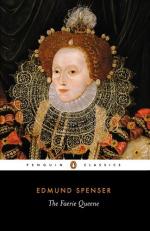|
This section contains 2,023 words (approx. 6 pages at 400 words per page) |

|
Metzger has a Ph.D., specializing in literature and drama at the University of New Mexico, where she is a Lecturer in the English Department and an Adjunct Professor in the University Honors Program. In this essay, she discusses Edmund Spenser's The Faerie Queene and its contributions as a representation of the literary ideal, the usefulness of literature in educating man, and creating social change.
Sixteenth-century England is framed by two fictional works that depict an ideal society. Sir Thomas More's Utopia (1516), which began the century, and Edmund Spenser's The Faerie Queene (1590), which ends the century, both create an ideal world where men behave with dignity and with truth and valor. This is a world in which personal values are more important than greed or lechery. When More creates his Utopia, he is responding to changes in English life, as English society moves from the Middle Ages...
|
This section contains 2,023 words (approx. 6 pages at 400 words per page) |

|




